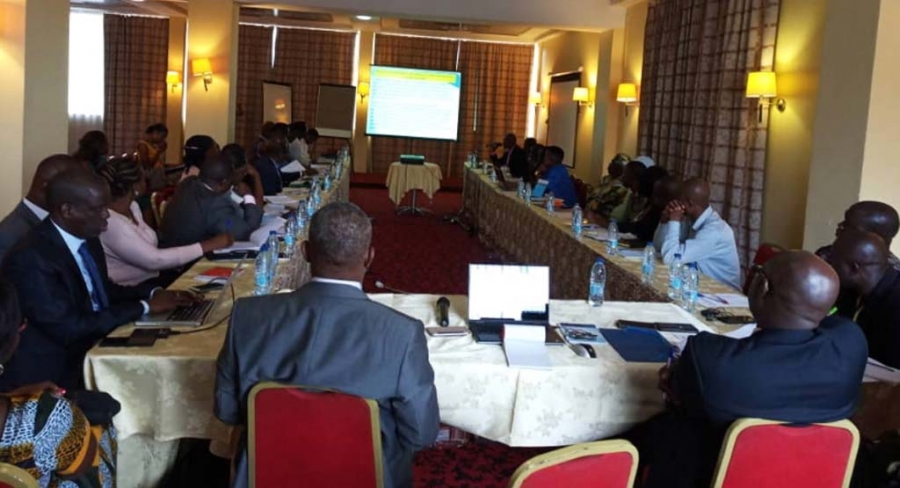The 2015 report of the WHO/UNICEF Joint Monitoring Programme titled "Progress on Sanitation and Drinking Water: Updating and Assessing the MDGs", states that one out of three persons in the world or 2.4 billion people (including 520 million in sub-Saharan Africa) still lack sanitation facilities. Despite progress recorded in recent years, the management of faecal sludge is always left out in urban and semi-urban sanitation. Thus, to help improve this worrying situation, the African Water Association (AfWA), through its RASOP-Africa program funded by the BMGF, initiated from 25 June to 10 August 2018, a series of training sessions for various stakeholders in non-sewer sanitation.
In Côte d'Ivoire, this training, which consisted of three modules, took place from 25 to 29 June 2018, and brought together various stakeholders.
The first module focused on the development of the material flow diagram, a tool that makes it possible to visualize the situation of non-collective sanitation in a city today. Participants discovered the usefulness of such a tool, especially for decision-making in sanitation planning. They were also introduced to the production of thematic diagrams and how to interpret them.
The second module focused on capacity building for sludge emptiers companies. This training was facilitated by experts from the Association of Sanitation Stakeholders of Senegal (AAAS). The head of the association, Ibrahim Sow, and his secretary general, NDiour Mamadou, shared their successful organizational and structuring experience, which has made AAAS a major player in sanitation decision-making in Senegal. The types of problems that may arise within a federation were also discussed. The objective was to strengthen the Ivoirian federation of sludge emptiers, in order to allow them to play an active role in the booming Ivoirian sanitation market.
The third training focused on the delegation of onsite sanitation services to the private sector, through a Public-Private Partnership (PPP) model and the development of a business plan. This was led by Mr. Mouhamadou Gueye, Program Director for the Structuring of the Senegalese Sludge Removal Market, Dakar. He talked about the different types of PPPs that exist and presented a practical case on the delegation of sanitation services in Senegal. Participants were also trained on how to develop a business plan for the creation of a small faecal sludge management company.
The opinion of participants was the same in each city that hosted the training. They expressed total satisfaction with the training content. For the chairman of the federation of Ivoirian sludge removers for example, the experience shared with the AAAS will guide the putting in place of a strong federation in Côte d'Ivoire. Participants also expressed the wish to strengthen exchanges through benchmarking missions with Senegal, which stands out today as a leader in the management of autonomous sanitation.

 English
English  Français
Français 
